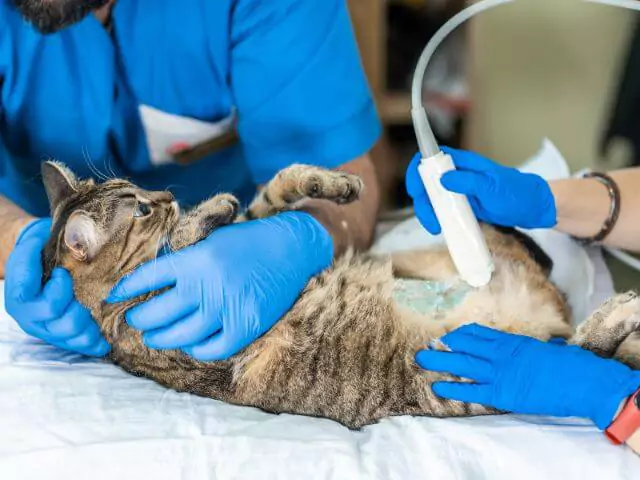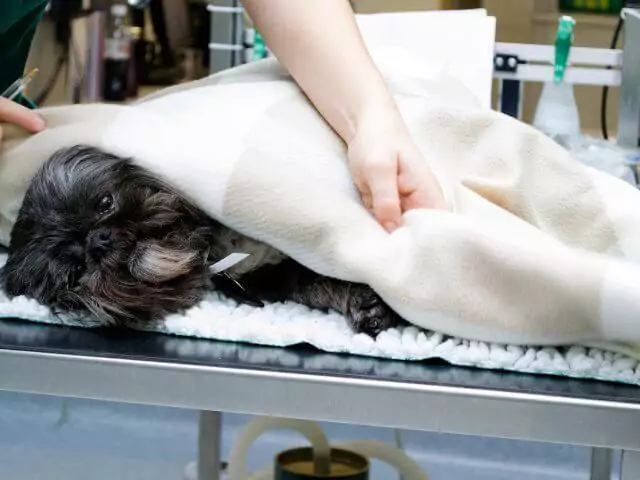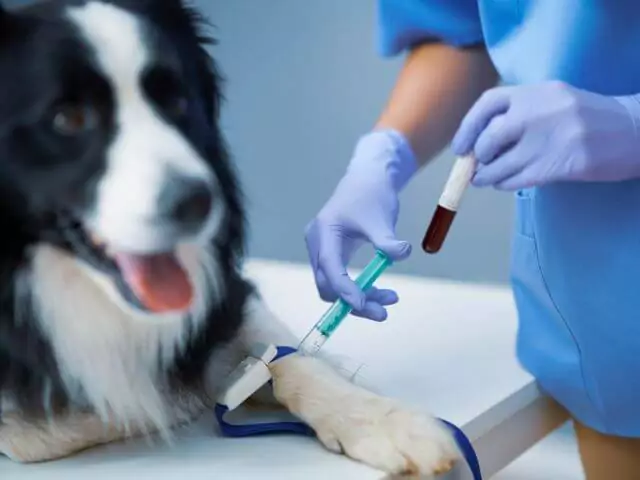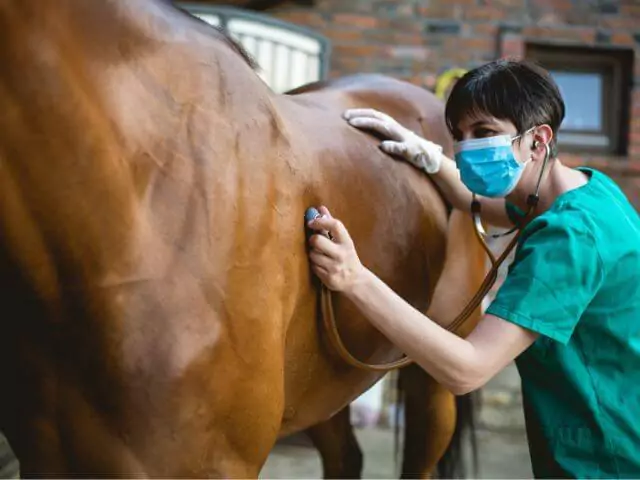When we think of the role of a Veterinary Nurse, many people are quick to assume they’re an assistant to the Vet, but in truth, their role is entirely different.
The Vet is there to decide on the necessary treatment an animal should receive, be that medical, surgical, or both. A Vet Nurse, on the other hand, is there to care for that animal throughout its course of treatment. But what does that entail exactly?

The Main Duties of a Veterinary Nurse
As a Registered Veterinary Nurse, you’ll have received detailed vocational training to make sure you have the skills to care for any animal that comes into your veterinary practice.
For this reason, it’s certainly a job that appeals to people who like to be kept busy. The number of tasks you need to be prepared to carry out at any point is extensive, so you’ll need a good memory!
If you’re wondering ‘What can I expect when working as a Veterinary Nurse?’, throughout the course of a day, you will typically find yourself.
Admitting Patients
When an animal patient comes into the practice, you’ll need to talk through the procedure with the caregiver. Often this involves answering questions. Once the client is satisfied, you’ll go over the consent form with them and collect the document once signed.

Preparing Animals for Procedures
When given the go-ahead, you’ll start prepping your animal patient for surgery. A big part of this is setting up their recovery site, so they have a clean and comfortable kennel to rest in once their procedure is completed.
Next will be preparing the medications the patient will receive, and having the Vet check over the calculations of the doses. Once approved, you can then place the catheter for these to be administered along with any fluids as required.
You might be required to carry out some blood tests at this stage. This can either be sent off to the lab to check for certain conditions, or as a pre-anaesthetic test to check on things like kidney and liver function, and the levels of red and white blood cells.
After this point, you will administer, monitor, and adjust the anaesthetic as needed, but only as directed by the Veterinary Surgeon.
Once the patient is asleep, you might be required to assist with surgical procedures by handing the Surgeon the instruments they need, holding them as required and removing or passing over tissues.
You can even carry out minor surgical procedures yourself, and suture wounds, so long as it doesn’t involve entering a body cavity. This is strictly only when under the direction of the Veterinary Surgeon.
Providing Post-Operative Care
After the surgery or procedure is complete, you’ll need to keep a check on the patient's condition while they are in recovery.
This typically involves regularly:
- Checking their temperature
- Monitoring their heart and respiration rates
- Scoring the patient's level of pain and ensuring they have the right level of pain relief
You will also need to apply bandages, dress any wounds, and make sure the animal has the right amount of food and water.

Running Nurse Clinics
As your Veterinary Nurse training is detailed and extensive, you can also provide a number of animal healthcare services without a Vet needing to be present. These are typically offered in ‘Nursing Clinics’, which are face-to-face consultations you have with animals and their caregivers, to help them manage long-term conditions.
Within these clinics, you can help with:
- Aged-related issues - Check things like blood pressure, behaviour, mobility, and urine to spot early signs of serious diseases or conditions
- Chronic conditions - Help animal owners manage long-term conditions like diabetes by testing glucose levels and taking blood samples
- Dental hygiene - Perform examinations to spot any signs of poor dental health, provide advice and where needed, refer more serious cases to the Vet
- Post-operative care - The road to recovery can be long, so you can dress wounds, apply bandages and give general advice to owners of animals recovering from surgery
- Weight management - Assess the animal and determine its Body Condition Score, before providing a weight-loss or gain plan. You can also advise on nutrition and appropriate exercise routines
- Vaccinations - Once a Vet has administered an initial vaccination, animal owners can come to you for any follow-on vaccinations within the course prescription. You can also help prevent parasites in animals by checking for fleas and worms and providing the necessary treatment

What Animals Can You Work with As a Vet Nurse?
Your Veterinary Nurse responsibilities can extend to a host of weird and wonderful animals. Many people assume that you will only work with everyday companion animals, but you will no doubt help with a wider variety of species in your career as a Vet Nurse.
Besides pets, you can find yourself working with:
- Equine animals - Provide care for horses as and when the need arises or complete additional studies to specialise in this area as an Equine Veterinary Nurse
- Livestock animals - Farmed animals like cattle, sheep and goats often require veterinary care. If you work in a rural veterinary practice, these will be a more common occurrence
- British Wildlife - Wild animals who require emergency care will often be brought into veterinary clinics prior to receiving rehabilitation treatments
- Zoo animals - Combine a love of exotic animals with your veterinary career and apply for jobs in zoos or safari parks
How Do I Get into Vet Nursing?
If you’re sold on the role of a Veterinary Nurse, the next step is to get qualified. To do this, you need to complete one of the veterinary nursing courses that are accredited by the Royal College of Veterinary Surgeons (RCVS).
You can opt for the Level 3 Diploma in Veterinary Nursing or go through the higher education route and complete a degree in veterinary nursing. Either option requires you to have already secured a work experience placement with an approved training practice.
Both types of courses also have entry requirements you need to meet:
- Level 3 Diploma in Veterinary Nursing - You need a C in GCSE English and Maths, or the Functional Skills equivalent. The RCVS also require you to have three other GCSEs at grade C or above, or a relevant Level 2 qualification, such as our Veterinary Nursing Assistant Level 2 Diploma (RQF)
- Degree in Veterinary Nursing - A grade C or above in Maths and English GCSEs, or a Functional Skills equivalent, are also typically required. However, you will also need to meet the Level 3 qualification requirement. If you don’t have A Levels, our Access to HE Diploma (Veterinary Science) is the perfect solution
Get Started Today!
Our online veterinary courses can help you get on the fast track to your career as a Veterinary Nurse. What’s more, they can be studied full-time, part-time, or whenever suits. They can also be completed from the comfort of home, so it really is the most flexible way to complete your studies.
Find out more now by talking to our Course Executives on 01202 006 464, contacting us online, or clicking the link below.
You can also keep track of all animal awareness days and events with our FREE calendar! Download it here.



















